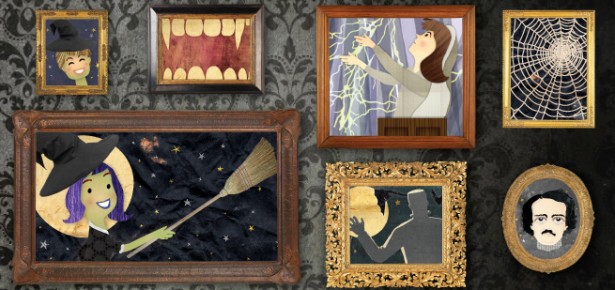
Anyone who teaches writing will tell you that discipline is essential to the writer’s craft. We need to be in control of ourselves, of our emotions and the words that express them. At the same time, however, the most basic idea of artistic inspiration also suggests a loss of self-control at the moment that writing really seems to take off. A friend of mine, a novelist who writes horror fiction, insists she works either early in the morning or late at night for this very reason. The whole process comes more easily, she says, when she is half asleep. The trance-like state is what lets her write in a way that feels less encumbered than when she is fully “herself.”
The various forms of psychical research and occult practice that were prevalent in the period gave these writers a way of understanding their own work habits as a sort of surrender to ghostly, paranormal, or unconscious forces.
In the late nineteenth century, as literary culture became more obviously and emphatically commercialized, the idea of writing as a kind of discipline was important because it underpinned the literary text’s value as a commodity. Who, after all, wants to buy something that is badly, or hastily, written? At the same time, though, a wide range of popular authors experienced their own creativity as a lack of self-control. The various forms of psychical research and occult practice that were prevalent in the period gave these writers a way of understanding their own work habits as a sort of surrender to ghostly, paranormal, or unconscious forces.
When the expatriate Australian novelist Rosa Praed wrote her 1904 novel Nyria, for instance, she believed that she was taking dictation from the discarnate spirit of a Roman slave channeled to her through a human medium. She imagined herself not as the author of the text, but as something akin to a secretary, a recorder, or an editor. It is difficult to delve into the level of credulity at stake here, but what does seem clear is that the aspects of the creative process that defied rational explanation were being externalized in a system of writing that radically departed from a model of authorship premised on the assumption of an original and self-possessed consciousness. For Praed, this orientation to occult forces merely anticipated aspects of the natural world that science was, as yet, unable to explain. “Until X-rays were utilised,” she wrote, “it was not considered possible that dense matter could be rendered transparent to the physical eye. Before Marconi invented wireless telegraphy, messages could not, it seemed, be carried through space without any visible medium of transmission. The step is not so far from wireless telegraphy to mental telepathy—which is fairly recognized now as more than a possibility.” Like telepathy, communication with the spirit world, she believed, was a reality that merely awaited the development of the scientific tools adequate to its representation.
This sense of writing as an experimental practice premised on a departure from conventional conceptions of authorship and authorial originality produced a wide range of texts haunted or unhinged by paranormal forces. But it wasn’t always spirits that embodied the occult dimension of popular fiction. Ecstatic or delirious states could do just as well. Arthur Machen, who wrote some of the weirdest, and most perverse horror fiction of the 1890s, insisted that genuinely great literature required a sort of mystical surrender to a realm that lay beyond the limits of consciousness, and of common, everyday life. It was for this reason that he drew upon notions of vision and prophecy to consolidate his sense of what modern creativity could, or should, be. “There have been artists, perhaps, who have worked like men under the influence of haschish, who have opened their mouths and prophesied, and then recovering from the possession sat up and stared, and asked where they were, and what they had been doing.” This suspension of consciousness was, Machen believed, a fundamental condition of literary genius. It explains why “bards, magicians, seers, prophets, and madmen ranked all together as men who spoke and worked miracles, things unintelligible to the ‘common sense,’ to the understanding which regulates and arranges the affairs of common life.”
My work on the occult in nineteenth-century popular fiction is about these claims to distinction that emerge at the moment that notions of control and craft are given up. Part of the period’s need for the supernatural, it turns out, stemmed from the fact that it enabled writers to articulate models of value that weren’t merely reducible to the forms commercial agency that, then as now, dominate the publishing industry. In one of my classroom fantasies, I imagine running a creative writing workshop along the lines suggested by the work of Praed or Machen. Students would enter into trance states or become mediums. The spirits of the dead or the specters of the unconscious would take over their pens and keyboards. This was how some of the most compelling fiction of the nineteenth century was apparently conceived.
Latest Comments
Have your say!